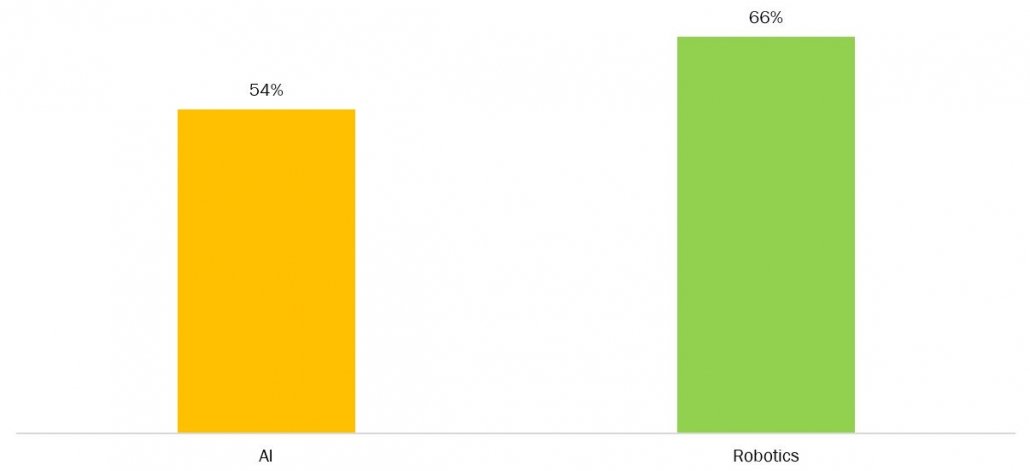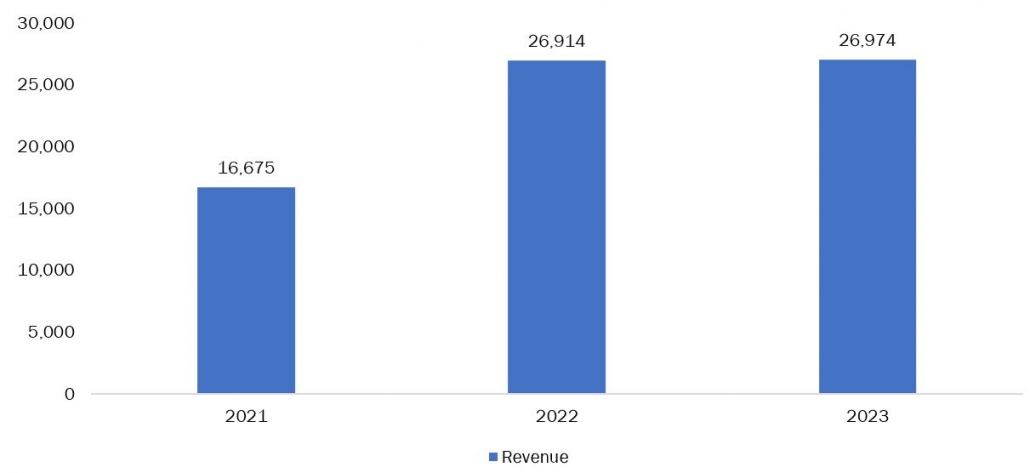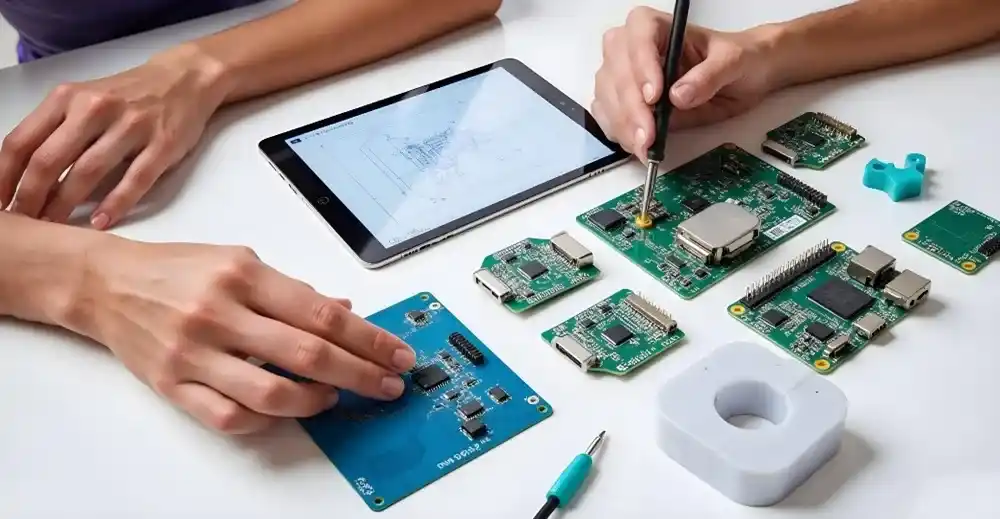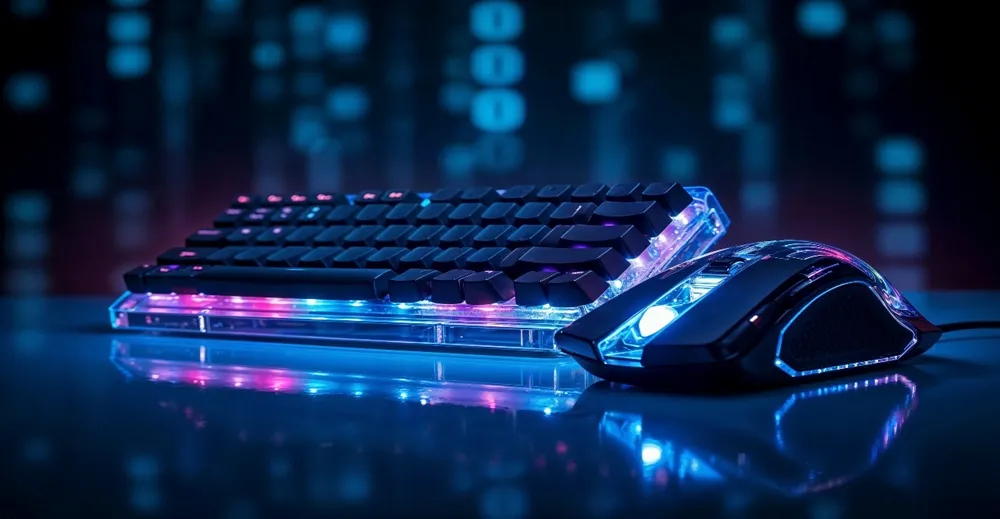AI Chipsets: Powering Smarter Devices, From Edge to Cloud

An AI chip is a special integrated circuit that is specifically designed to perform AI tasks. It is specialized computing hardware used in the development and deployment of artificial intelligence systems. The field programmable gate arrays (FPGAs), graphics processing units (GPUs), and application-specific integrated circuits (ASICs) are all examples of AI chips.
Global Production Trends
The production of AI chipsets has been steadily increasing over the years and the industry has been booming in recent times, driven by factors such as rapid growth in its various applications across various industries. In the automotive industry, they drive tasks such as identifying objects, merging sensor data, and making decisions, thus bolstering safety and enabling self-driving capabilities. Also, in the healthcare industry, AI chips play a major role in analyzing medical images and facilitating diagnoses from X-rays, MRIs, and CT scans.
Moreover, the rise of automation in technology is also a factor contributing to AI chipset production growth. The use of automation to automate tasks using robotics is becoming very common, and many firms are adopting AI and robots to automate their tasks in the organization rather than using any other advanced technology. For instance, as per the United States Census Bureau, around 30% of all workers are potentially exposed to advanced technologies used for automation purposes.
Figure 1: AI and Robotics Adoption, in Percentage, 2023
 Source: Census.gov
In recent years, there has been a notable increase in the production of AI chipsets in emerging economies with technological advancements in the AI field. They have a diverse set of end-users and can cater to all their needs. For instance, companies creating AI-centric products and services, smartphones featuring AI-powered technologies, and enterprises use these AI chips within data centers to tackle tasks such as refining business operations through predictive analysis and training expensive machine learning models.
IBM launched the AI Hardware Center to improve the technology of AI and reach its true potential so that they can improve AI hardware efficiency continuously each year. By 2029, the goal is to train and run AI models much faster than the company could in 2020.
AI chipsets production
Nvidia has been in the market for a long time. They have been producing GPUs (Graphics Processing Units) for the gaming sector like PlayStation, and Xbox since the 1990s. The company also makes AI chips such as Volta, Xavier, and Tesla. Additionally, owing to the generative AI boom in the tech industry, NVIDIA reached a trillion in valuation and reached the status of leader of GPU and AI in hardware markets. Also, companies like AMD (Advanced Micro Devices), and Intel are a major part of AI chipset production.
Furthermore, NVIDIA is raising the production of AI chips to meet surging demand in the market. Nvidia has come to dominate the market for Artificial Intelligence (AI) chips used in various things like robotics, electric vehicles like Tesla, and others. Additionally, the computer chip designer Nvidia shares have soared, taking the company's valuation above the one trillion dollar mark. This also means that it joins tech giants Apple, Amazon, Alphabet, and Microsoft in the elite club of $1tn US companies.
Figure 2: Revenue Growth of Nvidia, in USD Millions, 2021-23
Source: Census.gov
In recent years, there has been a notable increase in the production of AI chipsets in emerging economies with technological advancements in the AI field. They have a diverse set of end-users and can cater to all their needs. For instance, companies creating AI-centric products and services, smartphones featuring AI-powered technologies, and enterprises use these AI chips within data centers to tackle tasks such as refining business operations through predictive analysis and training expensive machine learning models.
IBM launched the AI Hardware Center to improve the technology of AI and reach its true potential so that they can improve AI hardware efficiency continuously each year. By 2029, the goal is to train and run AI models much faster than the company could in 2020.
AI chipsets production
Nvidia has been in the market for a long time. They have been producing GPUs (Graphics Processing Units) for the gaming sector like PlayStation, and Xbox since the 1990s. The company also makes AI chips such as Volta, Xavier, and Tesla. Additionally, owing to the generative AI boom in the tech industry, NVIDIA reached a trillion in valuation and reached the status of leader of GPU and AI in hardware markets. Also, companies like AMD (Advanced Micro Devices), and Intel are a major part of AI chipset production.
Furthermore, NVIDIA is raising the production of AI chips to meet surging demand in the market. Nvidia has come to dominate the market for Artificial Intelligence (AI) chips used in various things like robotics, electric vehicles like Tesla, and others. Additionally, the computer chip designer Nvidia shares have soared, taking the company's valuation above the one trillion dollar mark. This also means that it joins tech giants Apple, Amazon, Alphabet, and Microsoft in the elite club of $1tn US companies.
Figure 2: Revenue Growth of Nvidia, in USD Millions, 2021-23
 Source: NVIDIA Annual Reports
Market Dynamics and Drivers
Several factors drive the AI chipsets market, including a rise in generative AI in recent times coupled with the launch of ChatGPT has contributed to boosting the overall AI market. So, with this rapid growth in AI technology and popularity, the need for AI chipsets is rising proportionally. AI chipsets are used in a wide range of products such as electric vehicles with self-drive features, and smartphones which allow the processing to be done more efficiently, reducing power consumption and increasing battery life. Therefore, with a rise in demand for these products in the market, the AI chipset market is also predicted to grow.
The importance and rise in big data across several industries is one of the growth factors in the AI chipsets market. The growing need to handle this big data by using deep learning techniques and neural networks contributes to the market’s growth. An AI chip is an important part of processing AI algorithms. The more fast the chip will be the more amount of data it will be able to process quickly. These chips are mostly deployed at high-end servers or data centers because end computers are not able to process such huge loads of data and they don’t have enough time frame & power to process that data.
Challenges and Constraints
Despite the huge advantages and use cases of AI chipsets the companies that manufacture them require a lot of investments, a skilled workforce, and experts to manage, develop, and implement these AI technologies. The cost to do all these can be a hindrance to market growth. Also, the workforce should know AI technologies such as machine learning, neural networks, and deep learning and should be able to manage them after developing them.
The expansion of AI technology worldwide will require to integrate AI technology to be integrated into already existing technologies. The process of integrating AI into already existing technology will require special research and development to implement this practically. There can be no mistakes during this process as even one mistake and the whole operation of research and development will fail and the cost to do that is also very high which affects the market negatively. Furthermore, the lack of significant investments and skills required to work in developing and managing AI technologies will hinder the growth of the AI chipsets market in the forecasted period.
Emerging Opportunities and Innovations
The AI chipsets market presents numerous opportunities for innovation and growth. Advances in AI chipsets technology have led many major smartphone manufacturers to adopt AI chipsets in their devices like Samsung, Apple, and other smartphone manufacturers. These AI chipsets provide AI hardware with increased data privacy and security, sensitive data can remain on the device and doesn’t need to be sent over the internet for processing in the cloud. They will allow for processing to be done more efficiently, reducing power consumption, increasing battery life, and lowering response time.
For instance, Nvidia is integrating AI into GPUs (graphics processing units) that can utilize the Hopper architecture to accelerate AI applications. Nvidia is working with global system manufacturers and cloud service providers to make them available. The new GPU has 1.4x more memory bandwidth and 1.8x more memory capacity, improving its ability to handle intensive generative AI work.
Key Developments
Source: NVIDIA Annual Reports
Market Dynamics and Drivers
Several factors drive the AI chipsets market, including a rise in generative AI in recent times coupled with the launch of ChatGPT has contributed to boosting the overall AI market. So, with this rapid growth in AI technology and popularity, the need for AI chipsets is rising proportionally. AI chipsets are used in a wide range of products such as electric vehicles with self-drive features, and smartphones which allow the processing to be done more efficiently, reducing power consumption and increasing battery life. Therefore, with a rise in demand for these products in the market, the AI chipset market is also predicted to grow.
The importance and rise in big data across several industries is one of the growth factors in the AI chipsets market. The growing need to handle this big data by using deep learning techniques and neural networks contributes to the market’s growth. An AI chip is an important part of processing AI algorithms. The more fast the chip will be the more amount of data it will be able to process quickly. These chips are mostly deployed at high-end servers or data centers because end computers are not able to process such huge loads of data and they don’t have enough time frame & power to process that data.
Challenges and Constraints
Despite the huge advantages and use cases of AI chipsets the companies that manufacture them require a lot of investments, a skilled workforce, and experts to manage, develop, and implement these AI technologies. The cost to do all these can be a hindrance to market growth. Also, the workforce should know AI technologies such as machine learning, neural networks, and deep learning and should be able to manage them after developing them.
The expansion of AI technology worldwide will require to integrate AI technology to be integrated into already existing technologies. The process of integrating AI into already existing technology will require special research and development to implement this practically. There can be no mistakes during this process as even one mistake and the whole operation of research and development will fail and the cost to do that is also very high which affects the market negatively. Furthermore, the lack of significant investments and skills required to work in developing and managing AI technologies will hinder the growth of the AI chipsets market in the forecasted period.
Emerging Opportunities and Innovations
The AI chipsets market presents numerous opportunities for innovation and growth. Advances in AI chipsets technology have led many major smartphone manufacturers to adopt AI chipsets in their devices like Samsung, Apple, and other smartphone manufacturers. These AI chipsets provide AI hardware with increased data privacy and security, sensitive data can remain on the device and doesn’t need to be sent over the internet for processing in the cloud. They will allow for processing to be done more efficiently, reducing power consumption, increasing battery life, and lowering response time.
For instance, Nvidia is integrating AI into GPUs (graphics processing units) that can utilize the Hopper architecture to accelerate AI applications. Nvidia is working with global system manufacturers and cloud service providers to make them available. The new GPU has 1.4x more memory bandwidth and 1.8x more memory capacity, improving its ability to handle intensive generative AI work.
Key Developments
 Source: Census.gov
In recent years, there has been a notable increase in the production of AI chipsets in emerging economies with technological advancements in the AI field. They have a diverse set of end-users and can cater to all their needs. For instance, companies creating AI-centric products and services, smartphones featuring AI-powered technologies, and enterprises use these AI chips within data centers to tackle tasks such as refining business operations through predictive analysis and training expensive machine learning models.
IBM launched the AI Hardware Center to improve the technology of AI and reach its true potential so that they can improve AI hardware efficiency continuously each year. By 2029, the goal is to train and run AI models much faster than the company could in 2020.
AI chipsets production
Nvidia has been in the market for a long time. They have been producing GPUs (Graphics Processing Units) for the gaming sector like PlayStation, and Xbox since the 1990s. The company also makes AI chips such as Volta, Xavier, and Tesla. Additionally, owing to the generative AI boom in the tech industry, NVIDIA reached a trillion in valuation and reached the status of leader of GPU and AI in hardware markets. Also, companies like AMD (Advanced Micro Devices), and Intel are a major part of AI chipset production.
Furthermore, NVIDIA is raising the production of AI chips to meet surging demand in the market. Nvidia has come to dominate the market for Artificial Intelligence (AI) chips used in various things like robotics, electric vehicles like Tesla, and others. Additionally, the computer chip designer Nvidia shares have soared, taking the company's valuation above the one trillion dollar mark. This also means that it joins tech giants Apple, Amazon, Alphabet, and Microsoft in the elite club of $1tn US companies.
Figure 2: Revenue Growth of Nvidia, in USD Millions, 2021-23
Source: Census.gov
In recent years, there has been a notable increase in the production of AI chipsets in emerging economies with technological advancements in the AI field. They have a diverse set of end-users and can cater to all their needs. For instance, companies creating AI-centric products and services, smartphones featuring AI-powered technologies, and enterprises use these AI chips within data centers to tackle tasks such as refining business operations through predictive analysis and training expensive machine learning models.
IBM launched the AI Hardware Center to improve the technology of AI and reach its true potential so that they can improve AI hardware efficiency continuously each year. By 2029, the goal is to train and run AI models much faster than the company could in 2020.
AI chipsets production
Nvidia has been in the market for a long time. They have been producing GPUs (Graphics Processing Units) for the gaming sector like PlayStation, and Xbox since the 1990s. The company also makes AI chips such as Volta, Xavier, and Tesla. Additionally, owing to the generative AI boom in the tech industry, NVIDIA reached a trillion in valuation and reached the status of leader of GPU and AI in hardware markets. Also, companies like AMD (Advanced Micro Devices), and Intel are a major part of AI chipset production.
Furthermore, NVIDIA is raising the production of AI chips to meet surging demand in the market. Nvidia has come to dominate the market for Artificial Intelligence (AI) chips used in various things like robotics, electric vehicles like Tesla, and others. Additionally, the computer chip designer Nvidia shares have soared, taking the company's valuation above the one trillion dollar mark. This also means that it joins tech giants Apple, Amazon, Alphabet, and Microsoft in the elite club of $1tn US companies.
Figure 2: Revenue Growth of Nvidia, in USD Millions, 2021-23
 Source: NVIDIA Annual Reports
Market Dynamics and Drivers
Several factors drive the AI chipsets market, including a rise in generative AI in recent times coupled with the launch of ChatGPT has contributed to boosting the overall AI market. So, with this rapid growth in AI technology and popularity, the need for AI chipsets is rising proportionally. AI chipsets are used in a wide range of products such as electric vehicles with self-drive features, and smartphones which allow the processing to be done more efficiently, reducing power consumption and increasing battery life. Therefore, with a rise in demand for these products in the market, the AI chipset market is also predicted to grow.
The importance and rise in big data across several industries is one of the growth factors in the AI chipsets market. The growing need to handle this big data by using deep learning techniques and neural networks contributes to the market’s growth. An AI chip is an important part of processing AI algorithms. The more fast the chip will be the more amount of data it will be able to process quickly. These chips are mostly deployed at high-end servers or data centers because end computers are not able to process such huge loads of data and they don’t have enough time frame & power to process that data.
Challenges and Constraints
Despite the huge advantages and use cases of AI chipsets the companies that manufacture them require a lot of investments, a skilled workforce, and experts to manage, develop, and implement these AI technologies. The cost to do all these can be a hindrance to market growth. Also, the workforce should know AI technologies such as machine learning, neural networks, and deep learning and should be able to manage them after developing them.
The expansion of AI technology worldwide will require to integrate AI technology to be integrated into already existing technologies. The process of integrating AI into already existing technology will require special research and development to implement this practically. There can be no mistakes during this process as even one mistake and the whole operation of research and development will fail and the cost to do that is also very high which affects the market negatively. Furthermore, the lack of significant investments and skills required to work in developing and managing AI technologies will hinder the growth of the AI chipsets market in the forecasted period.
Emerging Opportunities and Innovations
The AI chipsets market presents numerous opportunities for innovation and growth. Advances in AI chipsets technology have led many major smartphone manufacturers to adopt AI chipsets in their devices like Samsung, Apple, and other smartphone manufacturers. These AI chipsets provide AI hardware with increased data privacy and security, sensitive data can remain on the device and doesn’t need to be sent over the internet for processing in the cloud. They will allow for processing to be done more efficiently, reducing power consumption, increasing battery life, and lowering response time.
For instance, Nvidia is integrating AI into GPUs (graphics processing units) that can utilize the Hopper architecture to accelerate AI applications. Nvidia is working with global system manufacturers and cloud service providers to make them available. The new GPU has 1.4x more memory bandwidth and 1.8x more memory capacity, improving its ability to handle intensive generative AI work.
Key Developments
Source: NVIDIA Annual Reports
Market Dynamics and Drivers
Several factors drive the AI chipsets market, including a rise in generative AI in recent times coupled with the launch of ChatGPT has contributed to boosting the overall AI market. So, with this rapid growth in AI technology and popularity, the need for AI chipsets is rising proportionally. AI chipsets are used in a wide range of products such as electric vehicles with self-drive features, and smartphones which allow the processing to be done more efficiently, reducing power consumption and increasing battery life. Therefore, with a rise in demand for these products in the market, the AI chipset market is also predicted to grow.
The importance and rise in big data across several industries is one of the growth factors in the AI chipsets market. The growing need to handle this big data by using deep learning techniques and neural networks contributes to the market’s growth. An AI chip is an important part of processing AI algorithms. The more fast the chip will be the more amount of data it will be able to process quickly. These chips are mostly deployed at high-end servers or data centers because end computers are not able to process such huge loads of data and they don’t have enough time frame & power to process that data.
Challenges and Constraints
Despite the huge advantages and use cases of AI chipsets the companies that manufacture them require a lot of investments, a skilled workforce, and experts to manage, develop, and implement these AI technologies. The cost to do all these can be a hindrance to market growth. Also, the workforce should know AI technologies such as machine learning, neural networks, and deep learning and should be able to manage them after developing them.
The expansion of AI technology worldwide will require to integrate AI technology to be integrated into already existing technologies. The process of integrating AI into already existing technology will require special research and development to implement this practically. There can be no mistakes during this process as even one mistake and the whole operation of research and development will fail and the cost to do that is also very high which affects the market negatively. Furthermore, the lack of significant investments and skills required to work in developing and managing AI technologies will hinder the growth of the AI chipsets market in the forecasted period.
Emerging Opportunities and Innovations
The AI chipsets market presents numerous opportunities for innovation and growth. Advances in AI chipsets technology have led many major smartphone manufacturers to adopt AI chipsets in their devices like Samsung, Apple, and other smartphone manufacturers. These AI chipsets provide AI hardware with increased data privacy and security, sensitive data can remain on the device and doesn’t need to be sent over the internet for processing in the cloud. They will allow for processing to be done more efficiently, reducing power consumption, increasing battery life, and lowering response time.
For instance, Nvidia is integrating AI into GPUs (graphics processing units) that can utilize the Hopper architecture to accelerate AI applications. Nvidia is working with global system manufacturers and cloud service providers to make them available. The new GPU has 1.4x more memory bandwidth and 1.8x more memory capacity, improving its ability to handle intensive generative AI work.
Key Developments
- In February 2024, Intel announced the official launch of Altera. This is a new standalone FPGA company. They aim to secure leadership across a $55 billion-plus market opportunity and expand the company's portfolio. Their solutions range from low-power embedded applications to networking and communications infrastructure.
- In February 2024, Intel announced that they would extend the benefits of the AI PC to commercial customers with the new Intel vPro platform. The new processor will deliver enhanced power efficiency, leadership performance, and available built-in Intel Arc GPUs.
- In February 2024, Qualcomm revealed an advanced 5G Modem-RF System that harnesses integrated AI to enable the next generation of 5G. It is the most advanced modem-to-antenna platform which has artificial intelligence with unparalleled power efficiency, spectrum flexibility, and performance. It enables readiness for 5G advancement across various product segments.
- In February 2024, Qualcomm announced the FastConnect 7900 product range which is the first AI-optimized Wi-Fi 7 System. It redefines user-connected Experience and enhances it. It will set a new bar for high performance, low latency, and low-power connectivity. FastConnect 7900 is the first to integrate Ultra Wideband, Bluetooth, and Wi-Fi technologies on a single chip.
Get in Touch
Interested in this topic? Contact our analysts for more details.
Latest Thought Articles

Top OSAT Companies Driving Semiconductor Assembly and Test Services Worldwide
Recently
EV Charging Stations Market Outlook: Smart Charging, Fast Charging, and Regional Expansion
Recently
Future of Corporate Wellness: Global Trends and Regional Outlook
Recently
Regional Breakdown of the Mechanical Keyboard Market: Who Leads and Why?
Recently